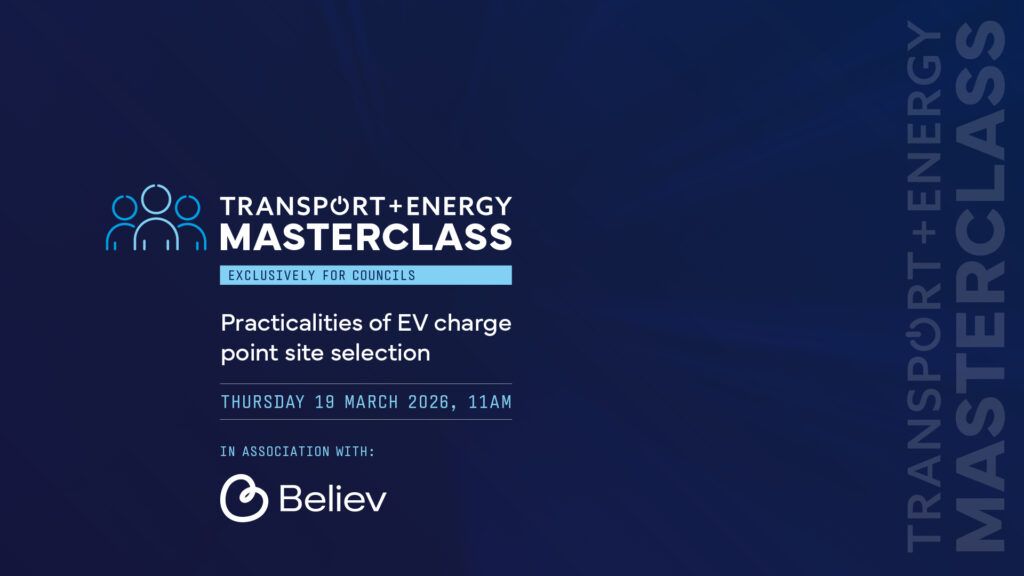Motoring broadcaster, transport campaigner and founder of FairCharge Quentin Willson highlights the importance of green levies and examines different ways in which they might be funded. Read his latest exclusive column for Transport + Energy.
With mushrooming energy costs and one of the worst cost of living crisis since the 1970s, there are now strident voices saying that we should scrap the green levies placed on consumer gas and electricity bills in order to help hard pressed households. Figures from Ofgem show that between 8% and 12% of electricity and gas bills – known as dual fuel – have a green subsidy attached to help fund home insulation and green renewable energy projects such as cheap wind and solar power. They also help fund social projects like the warm home discount that helps low-income households with heating bills. The average annual cost of green levies to household energy bills in the UK is currently around £160. But the long-term benefits of green levies aren’t in dispute with £6.2 billion saved in heating costs just on home insulation alone. Helping to fund renewable energy projects has brought the cost of wind and solar down to historic levels making renewable electricity the cheapest form of energy available. And the more renewable energy the UK produces the less we need to rely on imported gas and electricity and the rising wholesale prices being charged by countries like Russia. Being energy independent will save the UK many billions in the long term.
But climate sceptics don’t agree and claim we should be more concerned about the present than the future and scrap green levies altogether. There may be persuasive arguments on both sides, but one thing is abundantly clear: if we stop subsidising home insulation, heating bills for lower income families and pensioners and our ambitions to make Britain energy independent, our country will be much worse off, both literally and figuratively. The mistakes of decades of complacency over North Sea gas and taking cheap electricity for granted, are the reasons we’re now facing the unprecedented crisis of persistent energy inflation. All the experts agree that energy prices won’t return to their previous levels and Ofgem report that in the last decade wholesale electricity has risen by 140% and gas by 240%. With so much geopolitical uncertainty those rises aren’t going to stop. So, what do we do?
FairCharge believes that crafting a future energy strategy that helps create and source cheaper and more sustainable electricity and gas is vital, and green levies – or energy subsidies by another name – are crucial to the UK’s future energy independence. But we now have a financial emergency with families struggling to pay their energy bills now, never mind in the approaching winter when temperatures drop. We believe that the £160 each household pays in green levies is a relatively small price to pay (a couple of meals out) to forge a future of energy independence for the UK. But we need to find another way to fund this, urgently. There are various options: making energy companies contribute more from their vast profits, paying green subsidies out of general taxation, cutting the VAT on electricity, or getting the government to support the costs through a fiscal mechanism such as loans via an infrastructure bank. Given that lower energy costs will ultimately increase UK GDP, lower inflation and interest rates and benefit the country’s entire economy, there’s a powerful argument that this is a governmental responsibility. It’s not fair that consumers are expected to shoulder this burden alone.
The current thinking of a windfall tax on energy companies to pay 25% of their profits subsidising energy costs might seem a simple solution but may favour fossil fuel investment as those companies can write off 90% of any costs against tax. It may also discourage new investment in renewables. What we absolutely don’t need is a policy that increases our exposure to ever increasing gas and electricity prices that will ultimately cost consumers much more in the long term. Back in 2013 the Cameron government famously cut green levies, which experts reckon has caused our domestic energy bills to be £2.5 billion higher had those subsidies been left intact. We need to continue insulating homes, supporting lower income households and pensioners, reduce energy consumption and invest in a future of low-cost, sustainable renewable power, but pay for these vital energy policies in another way. And remember one very important point: the burgeoning cost of energy is down to one thing – the war in Ukraine and the high price of Russian gas. High energy prices are categorically not because of green levies. So, let’s find a new way to support all those anxious families and businesses through this unprecedented financial emergency, but don’t make this a chance for the diesel-driving climate deniers to sabotage the future of this country’s independent energy strategy. Future generations will thank us for our foresight.
Quentin Willson joined the Transport + Energy editorial board last year and writes an exclusive column for the publication.
In his first column which was published in September he outlined his concerns about the amount of information doing the rounds designed to discredit the electric vehicle (EV) in all its forms and what can be done to combat this.
In his second column, he discussed the energy crisis and examined how electrification provides the answer to get out of it.
And in November last year, Quentin spoke about the need for more robust Government policy when it comes to cleaning up our air.
Quentin spoke about the importance of councils when it comes to rolling out EV charging infrastructure in his first column of 2022.












